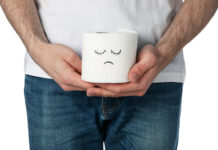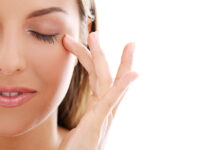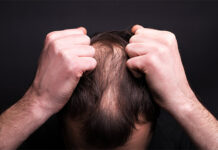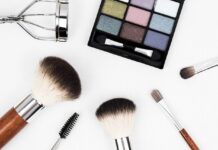Last Updated on October 28, 2020
When have you ever not heard people, especially ladies, complaining about how their hair is falling out. But most importantly, when has your own hair not fallen out!
First things first, hair shedding is completely normal. In fact, it is considered normal if you shed between 50 and 100 hair strands a day, but any more than that is definitely not.
But how do you know if your hair shedding is normal? It’s not like you can actually count how many hair strands you lost exactly, but you just know when your hair shedding is excessive or abnormal from how it falls just from touch or how your house is basically covered in hair.
There is a fine line between “hair shedding” and “hair loss,” and the difference is that the latter can be caused by several health conditions or disorders.
Whether you’re curious about why your hair is falling out more excessively than normal or are suspecting a specific health problem whose symptoms include hair loss, check this list out for answers.
#1 – You don’t eat enough protein
Hair follicles are made mostly of protein which is a crucial nutrient for hair production, growth, and strength. Thinning hair or hair loss can be strongly tied to protein deficiency.
If your hair is falling excessively every day or even changing color, it could be due to the lack of protein in your diet.
It is recommended that you consume at least 46 grams of protein every day, which you will find in a variety of foods including meat, fish, poultry, eggs, dairy products, nuts and seeds, pinto beans, lentils, chickpeas, etc.
If you know that you don’t eat your fill of these foods, consider adding them to your daily meals for a stronger and thicker hair.
#2 – You have iron deficiency
Iron deficiency, especially in its advanced stages, can be the culprit behind excessive hair loss.
Iron plays an important role in producing metalloprotein, an essential protein that the body relies on to carry oxygen in the blood. When iron levels are low, important cells, including the ones that stimulate nail and hair growth don’t get their fill of oxygen.
Causes of iron deficiency anemia include inadequate iron in your diet, excessive blood loss (i.e. heavy menstruation), stress and burn out.
Try eating more iron-rich foods like green vegetables, whole wheat, beans, lentils, cantaloupe, shellfish, liver, and nuts.
#3 – You use harsh hair products
One of the main causes of hair damage and loss is the frequent use of heat and chemical products. We’re all guilty of using some of those to tame frizzy or unruly hair, but that is the worst thing ever!
Using hair straighteners and blow-dryers strip your hair from moisture and cause breakage over time.
Hairstyles that pull on your hair such as tight ponytails can also result in hair loss and receding hairline.
Try massaging your scalp and brushing your hair every day because a lack of brushing can also lead to hair loss. That way, you will stimulate hair follicles and promote hair growth and thickness.
However, avoid brushing your hair too much since it will cause breakage and create more oil in your hair.
#4 – You’re pregnant/recently gave birth
Women can experience excessive hair loss during pregnancy or shortly after giving birth.
Pregnancy causes many hormonal and physiological changes in you, especially when it comes to estrogen levels that drop remarkably. This causes excessive hair shed throughout the nine months of pregnancy.
Postpartum changes linked to breastfeeding may also result in more hair shed which usually resolves with a year or less.
Though there is no solution to curb hair shed during pregnancy, keep eating healthy and taking your prenatal vitamin supplement. Your hair will eventually grow back healthier and stronger.
#5 – You’re taking a strong medication
You sure know that chemotherapy drugs cause hair loss, but they’re not the only ones.
Excessive hair shedding is one of the side effects of strong medications such as anticoagulant drugs that prevent blood clots, antihypertensive medications that treat high blood pressure, cholesterol-lowering medications, anti-arrhythmia drugs, thyroid drugs, non-steroidal anti-inflammatory drugs (NSAIDs), and antidepressant medication.
Try talking to your doctor if you experience excessive hair loss to find a suitable solution.
#6 – You have a genetic disorder
Hair thinning or baldness may also be a natural condition that is caused by the hair loss or baldness gene that can be passed down by your mother or father.
Research suggests that men who have a bald father are more likely to end up with thinning hair or pattern baldness. Female-pattern baldness is also hereditary and can be triggered by an internal imbalance such as severe stress or nutritional deficiency.
There are several medications that treat female and male pattern baldness which you must consult your doctor about.
Make sure to pamper your hair with natural hair masks made from essential oils such as lavender oil, olive oil, avocado oil, coconut oil, almond oil, and castor oil that moisturize your scalp, strengthen, and thicken your hair.
























